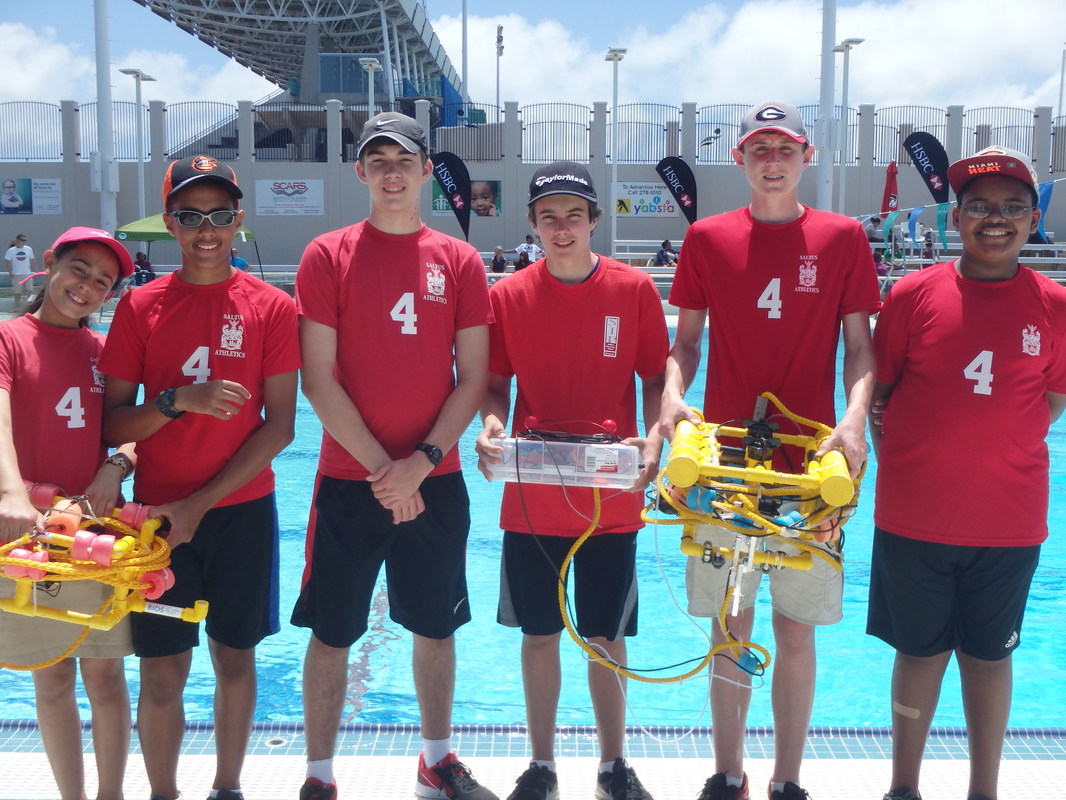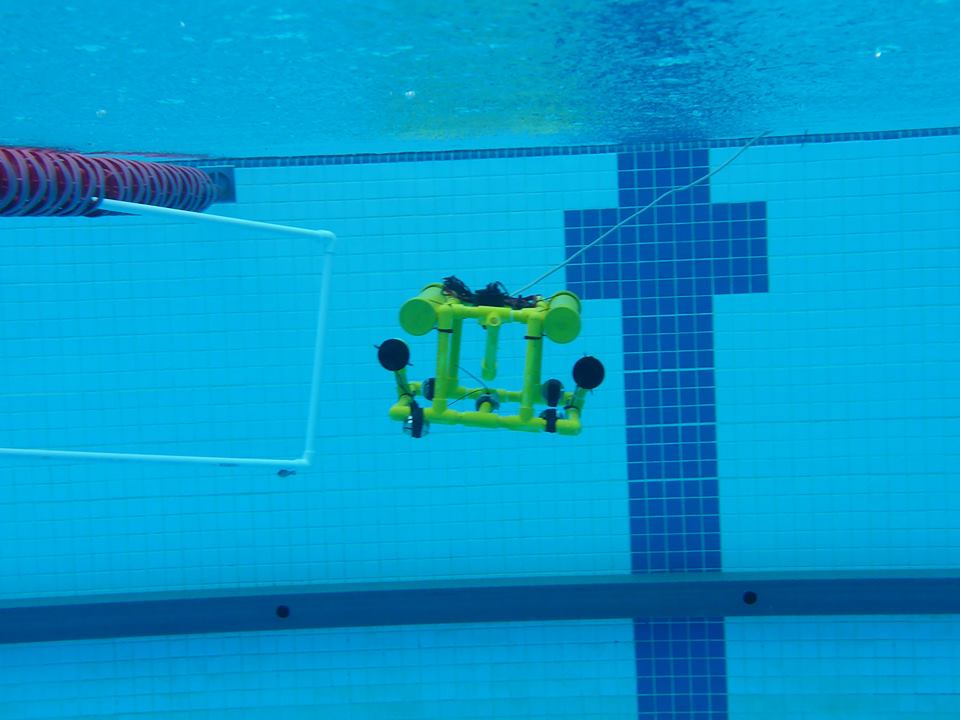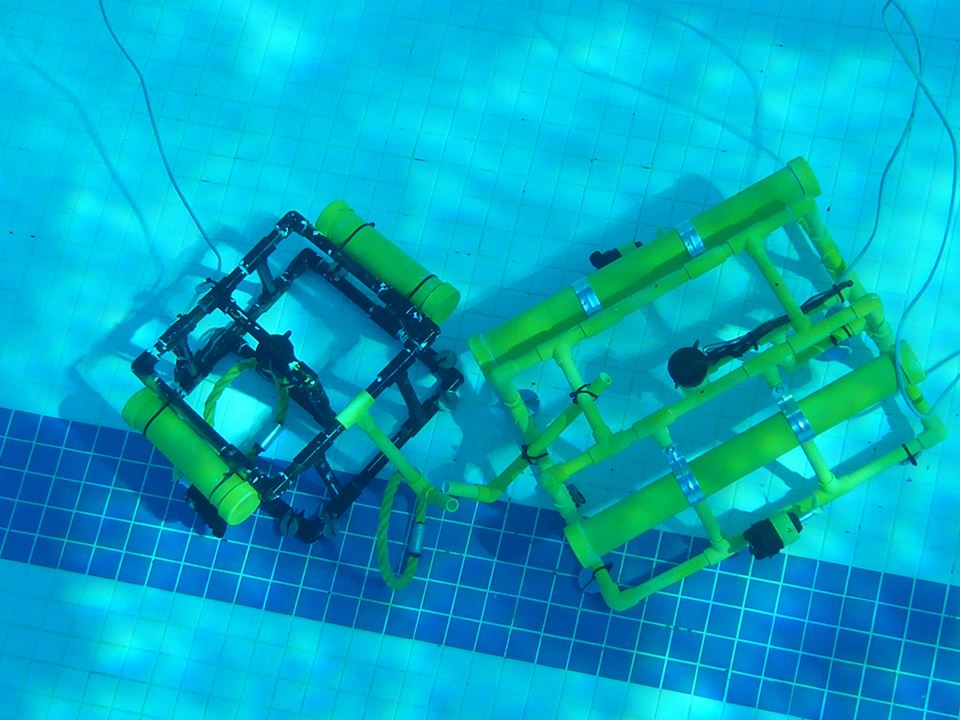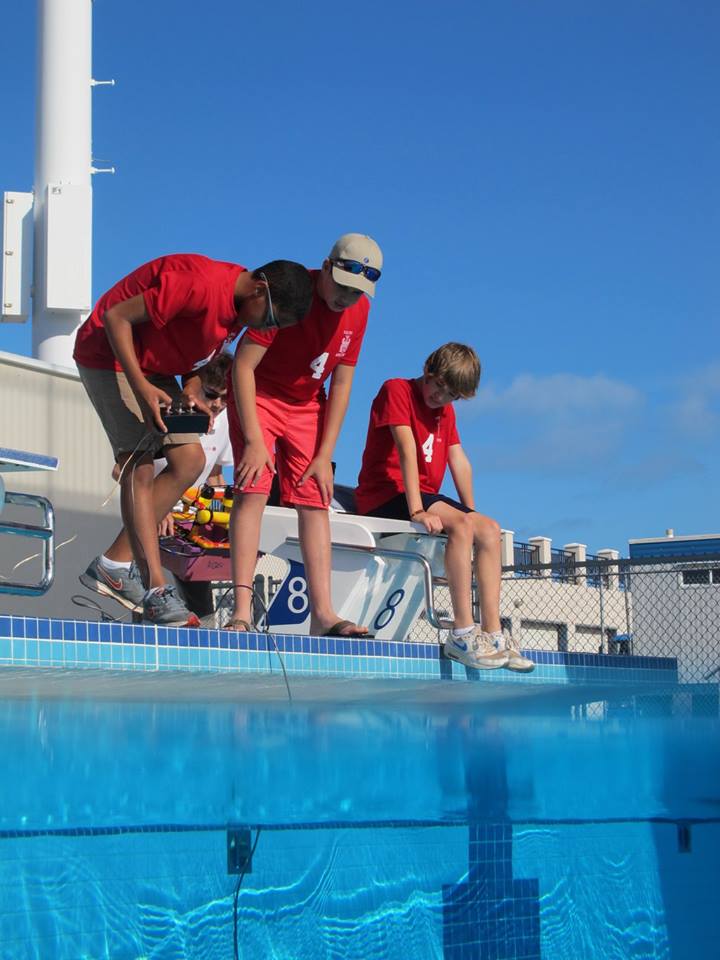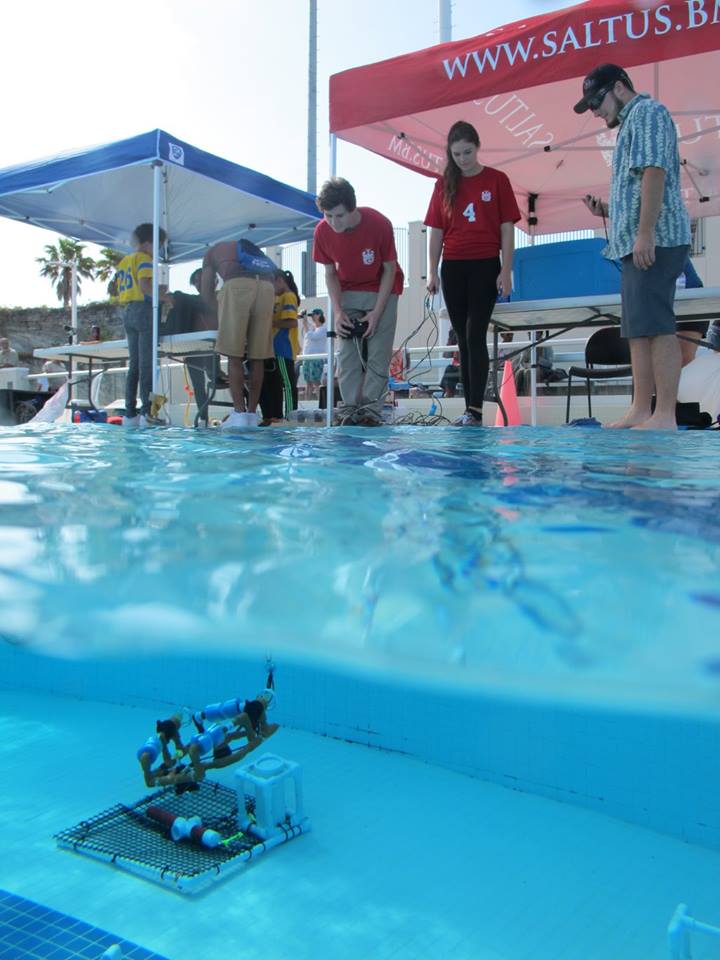As we live on a small island, we are constantly reminded that we are surrounded by the ocean. The island's research station, BIOS, has partnered with to help bring the world of marine science to the school as an extra-curricular project. The idea is that every term we will work on a project based on marine science. The first one is to build home-made Remotely Operated Vehicles (ROVs) that can perform missions. There is a lot of basic physics involved with these - from Archimedes' Principle, centre of mass and moments, to Newton's Laws of Motion!
2020 ROV Competition organised by BIOS
* Saturday 8th May *
2019 ROV Competition organised by BIOS
* Saturday 27th April *
This year we have 3 teams entered: 2 x Scout class and 1 x Ranger. Fly-through videos are courtesy of MATE. The teams are sticking with 4 motors, 2 of which move the ROV up and down. The side mounted motors are controlled by a joystick with 4 micro-switches that go via relays to the motors. It is crude, but avoids the use of microelectronics. After some experimentation with aluminium, we reverted back to 1/2 inch PVC pipe, which has the benefits of a) cost, b) can hide the wires and c) easy to work with. This year the students will not be drilling holes in the buoyancy tanks as no matter what we do, they always leak! One group has made some syntactic buoyancy for their ROV. We are also sticking with the water-filled hydraulic system for the claw. The biggest challenge is visibility and lack of underwater USB cameras that are actually waterproof.
Students this year need to up the game on the posters - include MORE science!
Students this year need to up the game on the posters - include MORE science!
|
|
|
2018 ROV Competition organised by BIOS
*Sunday 25 March*
Kaitlyn and team have produced some instructional videos!
Beginner: https://vimeo.com/256768451
SCOUT: https://vimeo.com/257554537
Beginner: https://vimeo.com/256768451
SCOUT: https://vimeo.com/257554537
This year we hope to have 2 Scout and 2 Beginner teams. Other goals are to fix the buoyancy and ballast on the Scout bots without using cable ties. Both will be steered using a joystick. Ideally the grabber will be hydraulically controlled again.
|
|
|
2017 ROV Competition
|
|
|
No MATE video produced for the BIOS local beginner level! Therefore, I have included a BERNEWS video from the 2016 competition which should give a feel!
2017: A group of three S10 students are working on changing the control box to use a joystick to steer the ROV rather than the stiff toggle switches given in the ROV bag kit. We purchased the joysticks from Amazon as well as a batch of relays that we require to wire between the joystick and the motors. They designed and built a hydraulic grabber. Overall the control systems worked much better, although the difficulties in piloting it remain. We had two groups of middle school students who competed in the beginner division.
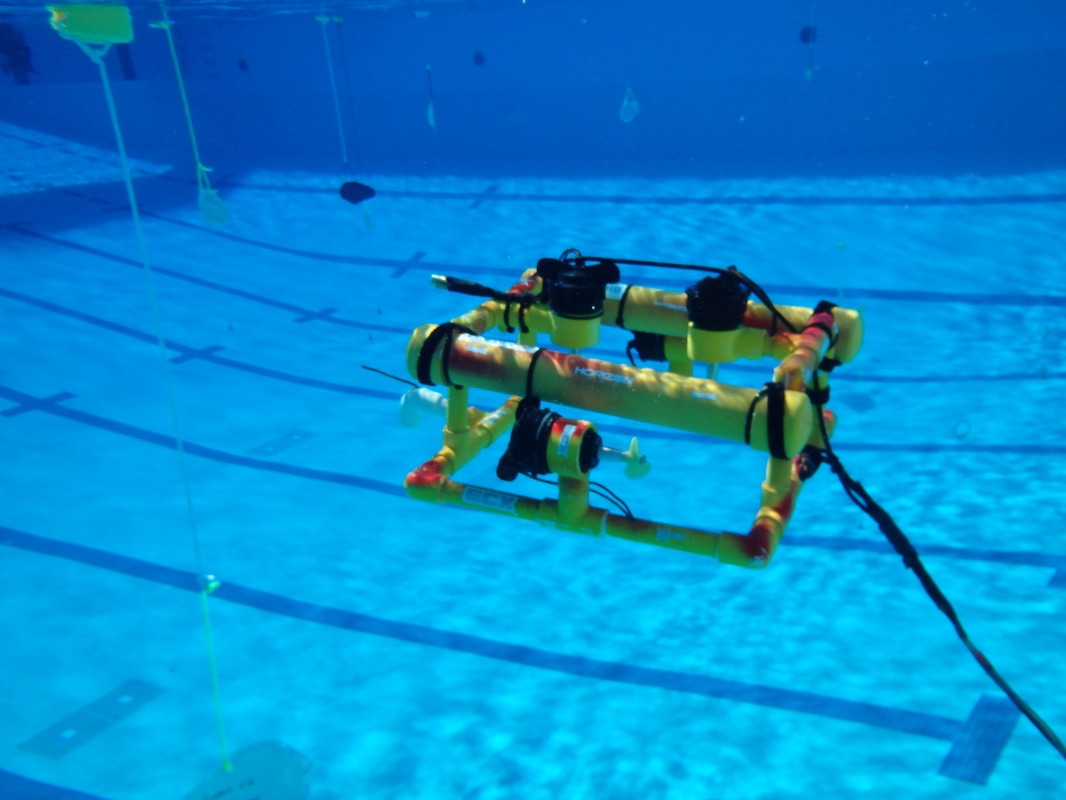
2016 ROV Competition organised by BIOS
2016: BIOS started running the competition using the MATE rules. We entered three teams of Scout class (Middle School) and three Navigator class (High School) bots. Despite the enthusiasm of the students they were stymied by two problems a) the wind on the surface of the swimming pool made it next to impossible to see the obstacles or the bot and b) the cameras provided by BIOS all flooded after prolonged immersion. The Clearwater team produced some excellent bots and had practiced a great deal with them - definitely raising the standard of the game.
|
|
|
Video: these videos have been produced by MATE to illustrate the tasks that the Middle School student have to complete for the BIOS competition on 30 April 2016! It can also be found on YouTube.
2015 ROV AngelFish Competition
(organised by BIOS)
Ocean Science and Technology Club - introductory powerpoint
2015: We had 3 groups of Middle School students and 1 group of High School students compete in the first AngelFish challenge. The challenge consisted of piloting the bots through an obstacle course and picking up different sized weighted rings. These early bots were crude and ours were among the best in the fleets. We do need to practice piloting them more - which was the difficult bit! The High school bot competed against the BIOS team. Later we installed a homemade waterproof webcam on the front and took it on a snorkling trip off North Shore. Piloting underwater when there are waves proved to be impossible, so in future we need to install a compass in front that can be seen by the camera.
